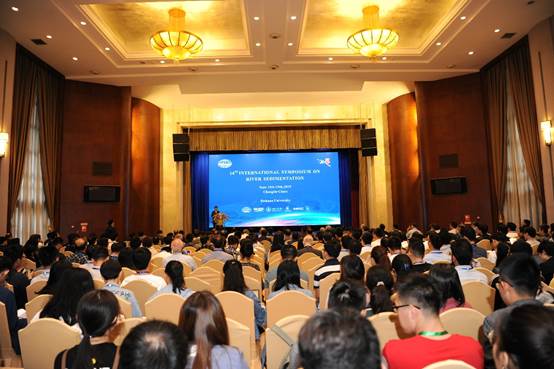
The 14th International Symposium on River Sedimentation (14th ISRS) was held in Chengdu, China from September 16-19, 2019. More than 400 participants from over 25 countries and regions attended the Symposium. The Symposium was organized by Sichuan University, sponsored by the International Research and Training Center on Erosion and Sedimentation (IRTCES) and the World Association for Sedimentation and Erosion Research (WASER), and co-sponsored by the International Association for Hydro-Environment Engineering and Research (IAHR), the National Inland Waterway Regulation Engineering Research Center, and the Changjiang River Scientific Research Institute.
The opening ceremony was held in the morning of September 17 and was chaired by Prof. Pengzhi Lin, Secretary General of the Local Secretariat. Seven welcome speeches were made by Prof. Weilin Xu, Chairperson of the LOC and Deputy President of Sichuan University; Mr. Yun Hu, Director General of the Department of Water Resources of Sichuan Province; Prof. Zhaoyin Wang, President of WASER; Prof. Guangquan Liu, Deputy Director of IRTCES; Prof. Gary Parker, Vice-President of the International Scientific Committee; Prof. Marcelo H. Garcia, a representative of the participants; and Mr. Pravin Karki, Global Lead Hydropower & Dams at the World Bank.
The 14th ISRS main theme was ‘Integrated Sediment Management in Rivers and Coasts’ with the following main topics:
- Sediment yield and erosion processes;
- Sediment transport;
- Sedimentation in estuarine and coastal areas;
- Reservoir sedimentation;
- Environmental and ecological sediment;
- Fluvial processes and geomorphology;
- Sediment related to disasters;
- Modeling & measurement techniques;
- Integrated sediment management; and
- Fluvial processes and regulation in the Yangtze River.
The programme included 10 plenary reports, 14 keynote reports, 150 technical presentations in up to 5 parallel sessions, and 59 poster presentations. The plenary reports were:
-
Global trends in water and sediment fluxes of the world’s large rivers
Prof. Jinren Ni, Peking University, China; -
Non-linear water and sediment diversions in rivers: a brief history of the Bulle-Effect
Prof. Marcelo H. Garcia, University of Illinois at Urbana-Champaign, USA; -
Cooperation platform for sediment-related flash flood risk management
Prof. Xingnian Liu & Prof. Chao Liu, Sichuan University, China; -
Sediment transport and channel morphology of mountain streams: insights from field observations, flume experiments and modelling
Prof. Marwan A. Hassan, The University of British Columbia, Canada; -
Mountain river morphodynamics in tectonically active and earthquake prone regions
Prof. Xudong Fu, Tsinghua University, China; -
Threshold of particle movement: a new paradigm
Prof. Panayiotis Diplas, Lehigh University, USA; -
Sedimentation Processes in the Selenga River Fluvial-deltaic System: Assessing the Influences of Grain Size and Tectonics on Channel Dynamics
Prof. Jeffrey Nittrouer, Rice University, USA; -
Quasi-equilibrium and equilibrium in fluvial channel geometry: The presence of multiple stable equilibrium states
Prof. Astrid Blom, Delft University of Technology, the Netherlands; -
Recent flood disasters caused by river embankment failure in Japan and numerical modelling of embankment failure
Prof. Hajime Nakagawa, Kyoto University, Japan; and -
Future sedimentation studies
Prof. Zhaoyin Wang, Tsinghua University, China
A half-day technical tours were arranged on the afternoon of September 18. The participants visited the ancient Dujiangyan irrigation project, one of the oldest water projects in the world (2270 years old), which is still working today for flood control and irrigation, due to its success in dealing with problems caused by sediment deposition and scour.
During the Symposium, the Sixth WASER Council Meeting and Assembly were held on September 16 and 19, respectively. The International Workshop on RESCON 2 and Numerical Modeling for Assessment of Sediment Management Alternatives was co-organized by the World Bank, WASER, Sichuan University and UNESCO Beijing Office on September 17.
The closing ceremony was organized on the afternoon of September 19. Prof. Zhao-Yin Wang, the President of WASER, chaired the closing ceremony. Prof. Pengzhi Lin from Sichuan University gave a brief overview for the 14th ISRS. Prof. Guangquan Liu, the representative of the ISRS permanent Secretariat, announced that the 15th ISRS will be held in Florence, Italy in 2022 and will be co-organized by the University of Florence and the University of Padua. Prof. Liu took the symposium banner from Prof. Pengzhi Lin, representative of the 14th ISRS LOC and handed it over to Prof. Luca Solari, representative of the next host Universities. Prof. Solari gave a speech and showed a video to introduce Florence and to invite and welcome all participants to meet again in Florence in 2022 for the 15th ISRS.
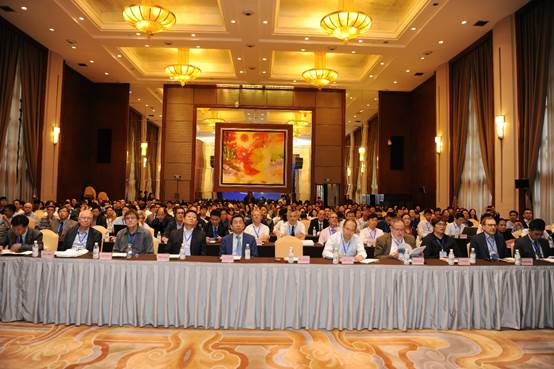
Opening Ceremony
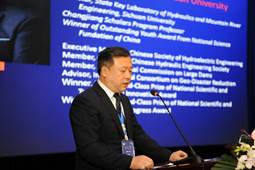
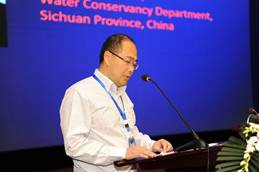
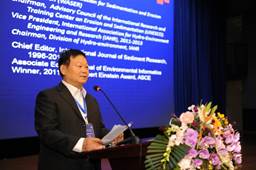
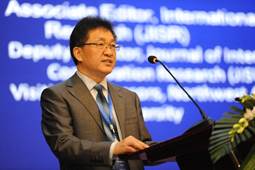
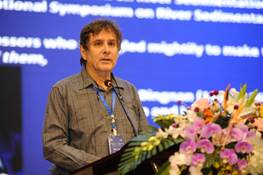
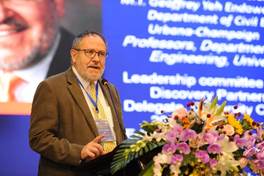
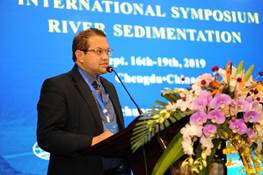
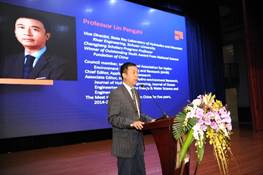
Welcome speeches at the Opening Ceremony
(Prof. Weilin Xu; Mr. Yun Hu; Prof. Zhaoyin Wang; Prof. Guangquan Liu; Prof. Gary Parker; Prof. Marcelo Garci; Mr. Pravin Karki; Prof. Pengzhi Lin)
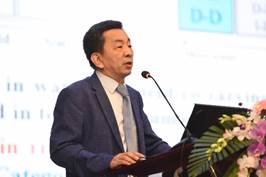
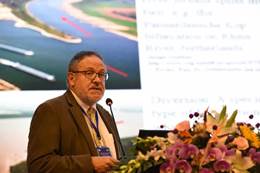
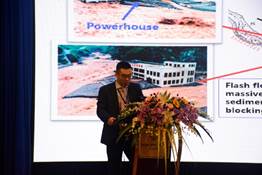
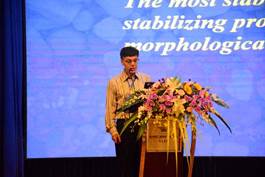
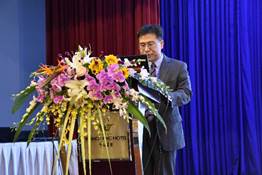
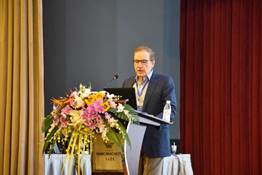

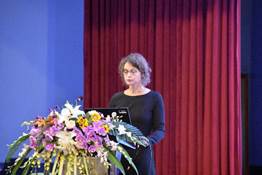
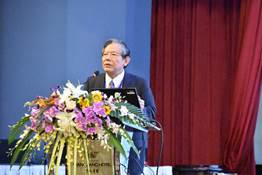
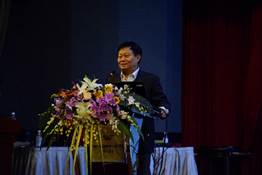
Plenary Reports
(Prof. Jinren Ni; Prof. Marcelo Garcia; Prof. Chao Liu; Prof. Marwan Hassan; Prof. Xudong Fu; Prof. Panayiotis Diplas; Prof. Jeffrey A. Nittrouer; Prof. Astrid Blom; Prof. Hajime Nakagawa; and Prof. Zhaoying Wang)
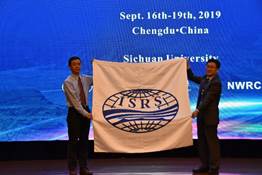
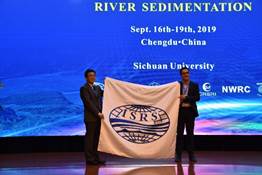
ISRS symposium banner hand over